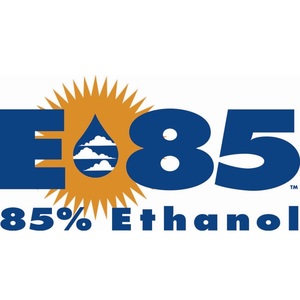Michigan Senate votes to approve tax credit for E15, E85

July 5, 2022
BY Erin Krueger
The Michigan Senate on June 30 voted 24 to 14 in favor of legislation that aims to create a tax credit for retailers that choose to sell higher ethanol fuel blends, such as E15 and E85. The bill was then sent to the Michigan House of Representatives, where it was referred to the Committee on Tax Policy.
The legislation, Senate Bill 814, was introduced in January by State Sen. Kevin Daley. The bill aims to create a 5-cent-per-gallon tax credit for the sale of E15 and an 8.5-cent-per-gallon credit for the sale of E85. Both credits would expire after five years unless renewed by the legislature.
The Michigan Senate Agriculture Committee on June 23 held a hearing to consider the legislation. Growth Energy General Counsel Joe Kakesh offered testimony in support of the bill during that hearing. The Michigan Farmers Union, Michigan Corn Growers Association, Michigan Agri-Business Association, Clean Fuels Michigan have also advocated for passage of the bill. The groups on June 1 sent a letter to leaders of the Michigan legislature urging them to take action on the legislation.
Growth Energy applauded the June 30 senate vote. “We thank committee Chairman Daley and his colleagues for moving ahead with plans to expand access to lower-cost, lower-emissions biofuel blends across Michigan,” said Emily Skor, CEO of Growth Energy. “As Growth Energy testified last week, bioethanol blends such as E15 and E85 provide environmental benefits, boost Michigan’s farmers and biofuel producers, and give consumers more affordable choices at the pump. With holiday drivers facing record-high prices, today’s vote is a welcome sign that Michigan leaders are working to restore U.S. energy security and support local communities.”
Advertisement
Advertisement
Ethanol producer Poet LLC has also welcomed passage of the bill. “We are very grateful to Chairman Daley and his colleagues for working to unlock the full potential of Michigan biofuels to save drivers money and protect our climate,” said Emily Boynton, general manager at POET’s Caro Bioprocessing Plant, who testified in favor of the bill during a hearing on June 23. “The savings offered by E15 and higher blends of bioethanol continue to grow, and this legislation will help to put that savings within reach of more Michigan drivers -- now and in the years to come. More choice at the pump means less dependence on fossil fuels, fewer toxic chemicals in our air, and a stronger bioeconomy right here in Michigan.”
Advertisement
Advertisement
Related Stories
The USDA has announced it will delay opening the first quarterly grant application window for FY 2026 REAP funding. The agency cited both an application backlog and the need to disincentivize solar projects as reasons for the delay.
Neste and DHL Express have strengthened their collaboration with the supply of 7,400 tons (9.5 million liters) of neat, i.e. unblended, Neste MY Sustainable Aviation Fuel to DHL Express at Singapore Changi Airport starting July 2025.
CoBank’s latest quarterly research report, released July 10, highlights current uncertainty around the implementation of three biofuel policies, RFS RVOs, small refinery exemptions (SREs) and the 45Z clean fuels production tax credit.
The U.S. Energy Information Administration maintained its forecast for 2025 and 2026 biodiesel, renewable diesel and sustainable aviation fuel (SAF) production in its latest Short-Term Energy Outlook, released July 8.
XCF Global Inc. on July 10 shared its strategic plan to invest close to $1 billion in developing a network of SAF production facilities, expanding its U.S. footprint, and advancing its international growth strategy.
Upcoming Events










